Spotlight
Learning to Lament
Published
2 years agoon

By Jessica Sanford
By nature, I tend to shy away from negative emotions, preferring a world where everyone is happy and there’s no conflict. (Yes, I do realize this kind of world does not exist this side of heaven, but one can always dream!) As a result of my desire to avoid all things negative, I have sometimes struggled to admit to myself, to God, or to others those moments when hurt or sadness or fear or anxiety or discouragement or even anger have invaded my heart. I have erroneously believed to do so made me appear weak or whiny or somehow un-Christian. (Nobody likes a weak or whiny Christian. Am I right?)
I have erroneously believed my “faith” obligated me to deal with my emotions quickly and move on, never really giving myself permission to “feel” for too long, absorbing the negative circumstance and continuing on as if everything were fine (when everything wasn’t fine). I felt the sting, but my reaction was more of a whimper rather than a shout. After all, Christians don’t despair; they might cry, but only a little. Or so I thought.
Apparently, Christians are also super-human.
These patterns worked – until they didn’t – and I have spent the past several months coming face to face with some places of sorrow and disappointment I had never given myself permission to fully feel. I call these places “pain spots.”
If we are honest, we all have pain spots, areas in our lives that for lack of a better word, stink! A difficult boss, a troubled marriage, a prodigal child, broken relationships, unfulfilled dreams, unfair treatment, loneliness, betrayal, a bleak medical prognosis, lingering anxiety, physical and mental exhaustion, financial hardship, deep sorrow, the loss of a loved one. The list is seemingly endless. What do we do with these pain spots and the emotions they invoke? Though not an exhaustive list, some unhealthy responses might include denial, avoidance, withdrawal, isolation, victimhood, lashing out, self-harm, and self-medicating.
The reality is that we are emotional beings who face an array of both positive and negative emotions every day. To deny our emotions is to deny our humanness. As I am learning, emotionally healthy people learn to lean in to their emotions rather than brush them aside. They learn how to manage their emotions in appropriate, God-honoring ways. They are willing to be honest about what they are feeling, and they are willing to take the steps necessary to walk in wholeness.
In her book How to Survive as a Pastor’s Wife, author Christine Hoover identified some of the challenges ministry leaders face. Though there are many joys, to be sure, there are also challenges. To ignore this fact would be dishonest. How can leaders navigate these inevitable challenges well? Hoover introduces a practice I had not considered. One way to process the hard places of ministry (and life) is through the practice of lament.
What exactly is lament? Lament can be defined as a passionate expression of grief or sorrow.
However, as Mark Vroegop points out in his book Dark Clouds, Deep Mercy: Discovering the Grace of Lament, “In the Bible lament is more than sorrow or talking about sadness. It is more than walking through the stages of grief. Lament is a prayer in pain that leads to trust.”i Vroegop goes on to describe biblical lament as “the honest cry of a hurting heart wrestling with the paradox of pain and the promise of God’s goodness.”ii Or put another way, “Lament is how you live between the poles of a hard life and trusting in God’s sovereignty.”iii
Learning how to cultivate the skill of lament is healthy and biblical, and it can be a powerful tool in helping us process our emotions and pain spots. The Psalms are full of laments, making up about one third of the entire book.iv And an entire book of the Bible, Lamentations, is dedicated to lament.
David expressed lament in Psalms 13 (NLT):
O Lord, how long will you forget me? Forever?
How long will you look the other way?
How long must I struggle with anguish in my soul,
with sorrow in my heart every day?
How long will my enemy have the upper hand?Turn and answer me, O Lord my God!
Restore the sparkle to my eyes, or I will die.
Don’t let my enemies gloat, saying, “We have defeated him!”
Don’t let them rejoice at my downfall.But I trust in your unfailing love.
I will rejoice because you have rescued me.
I will sing to the Lord
because he is good to me.
Clearly, we don’t live in a continual state of lament. There is a greater purpose to lament than merely grieving for grieving’s sake, so how do we practice biblical lament?
- Turn toward God in prayer. The turning is important because it signifies our desire to look to God for help. When hope feels distant, we turn to the God who hears our cries and sees our tears. “O, Lord, you hear the desire of the afflicted; you will strengthen their heart; you will incline your ear” (Psalm 10:17, ESV). “You keep track of all my sorrows. You have collected all my tears in your bottle. You have recorded each one in your book” (Psalm 56:8, NLT).
- Talk to God about what’s wrong. Tell Him all of it! He already knows what’s taking place inside our hearts, but He is waiting for us to voice it to Him. This is where keeping a journal can be especially helpful. (Sometimes it helps me to get my thoughts down on paper before trying to verbalize them.) It’s important not to rush this step. Lament can feel unnatural because it requires us to sit with our feelings for longer than we are often comfortable.
- Trust in God. Keep moving toward trust by asking God to help you get there. “Strengthened confidence in God’s trustworthiness is the destination of all lament.”v Lament is not a quick fix; rather, it’s a journey toward deeper faith and trust in God. And while our circumstances may not change, through lament “God redirects our gaze” and reminds us of His goodness right in the middle of our pain.vi
I have been practicing lament, voicing my pain spots to the Lord, and allowing Him to redirect my gaze. It’s messy and raw and profound and completely out of my comfort zone. (Did I mention I don’t like negative emotions?) I only wish I had discovered the skill of lament much, much earlier.
Perhaps you have some pain spots you need to bring before the Lord? Biblical lament can be one tool in helping you navigate those hard places. I’d encourage you to get some tissues and give it a try. Blessings, friends!
For a fuller understanding of biblical lament, Mark Vroegop’s book, Dark Clouds, Deep Mercy is very helpful.
[i] Mark Vroegop, Dark Clouds, Deep Mercy: Discovering the Grace of Lament (Wheaton, IL: Crossway, 2019), 28.
[ii] Vroegop, Dark Clouds, Deep Mercy, 26.
[iii] Vroegop, Dark Clouds, Deep Mercy, 21.
[iv] www.gotquestions.org/lament
[v] Mark Vroegop, Dark Clouds, Deep Mercy Devotional Journal (Wheaton, IL: Crossway, 2022), 14
[vi] Christine Hoover, How to Thrive as a Pastor’s Wife (Grand Rapids: Baker Books, 2022), 90.
About the Author
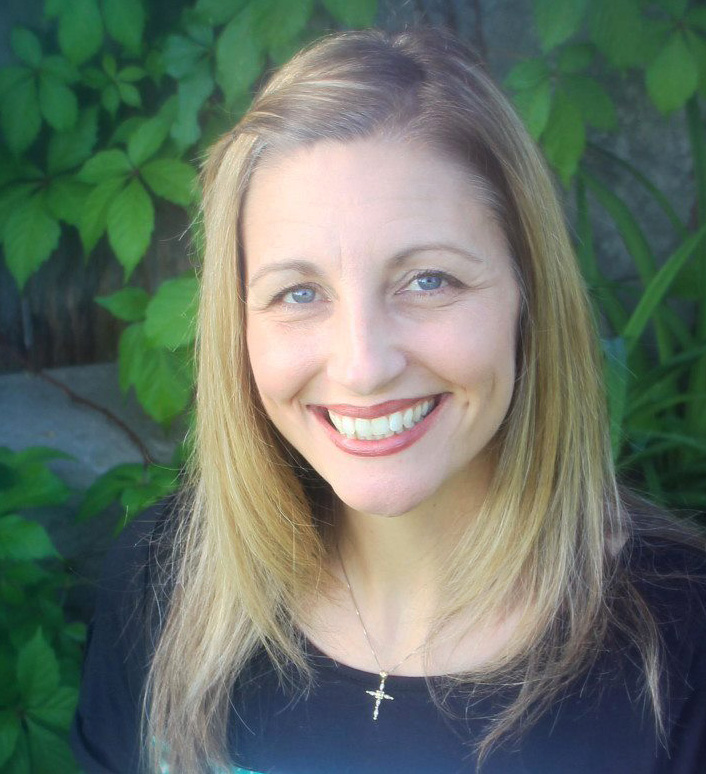
Jessica Sanford has served alongside her husband, Matt, in ministry for over two decades. She is a licensed coach with Leader Breakthru, Inc. and is passionate about making disciples and helping facilitate the spiritual transformation of those not content with the status quo. She also loves seeing women in ministry, especially other pastors’ wives, realize and step into their unique calling.

I am Shane Blackledge, and my wife Amber and I are the founding pastors of Cultivate Church in St. Louis, Missouri. My story is one of transformation and God’s grace, showing how He can use anyone to build His kingdom.
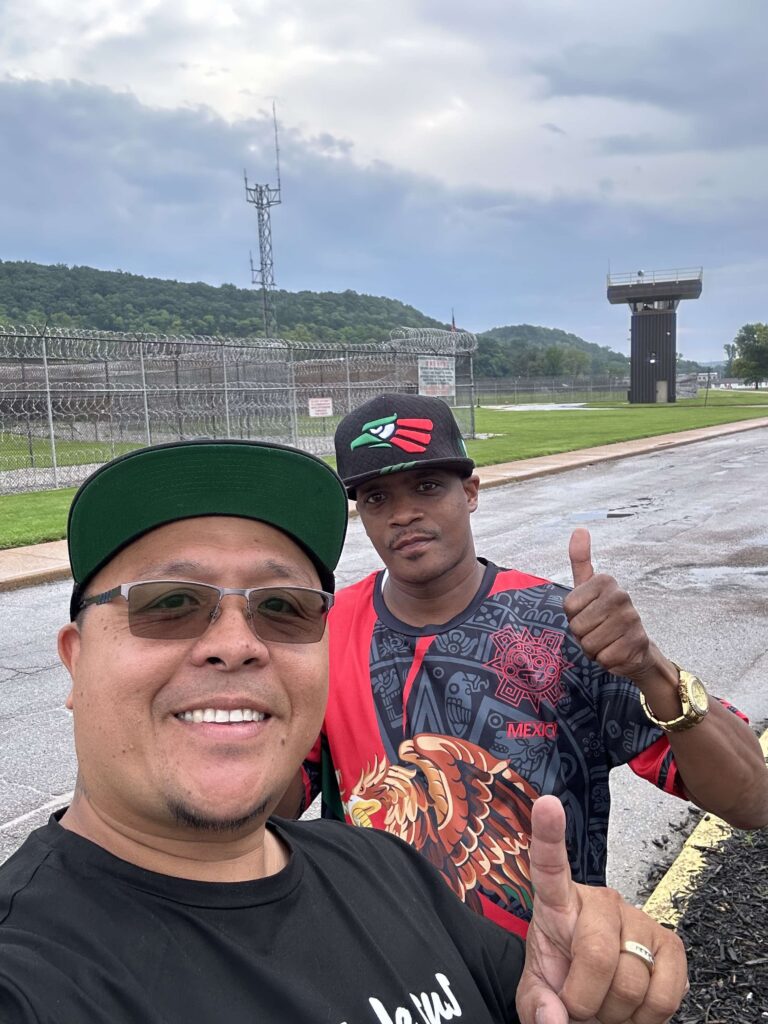
I was born in Colorado at the Air Force Academy Hospital. My father served in the Vietnam War, and while stationed in Taiwan, he met my mother and they got married. When I was six, my parents separated, and my mother moved back to Taiwan, leaving me devastated. As a kid, I faced racism and extreme poverty. I battled depression, anxiety, and thoughts of suicide. I started smoking and drinking at eight years old, joined a gang at age thirteen, and was using meth daily by the time I was fourteen.
At age seventeen, I was arrested and sentenced to thirty years in prison for selling drugs. I found myself in my jail cell wanting to end it all. On my night stand I found a Gideon Bible, and I opened it right to John 3:16. As I sat there reading, I realized I was a sinner, but that God created me and I had a purpose to live. I repented and asked Jesus to forgive me. I felt the Father’s love and the presence of the Holy Spirit in an indescribable way.
After my release, I struggled transitioning back into society (finding a job, paying rent, and finding a church that would accept me). I was discouraged and soon relapsed on meth. During the years of my addiction, I was sent to five prisons and was incarcerated for over six years. In 2006, after nearly dying from an overdose, I woke up from a coma and realized God had saved me from death. That day I fully surrendered to Christ, and that’s when my real transformation began.
In 2006, after nearly dying from an overdose, I woke up from a coma and realized God had saved me from death
God restored what addiction had taken from me. I have now been clean from meth for seventeen years. In 2013, I married Amber. We started attending Waverly Life Church, served as youth leaders, and eventually started a Celebrate Recovery program. In 2022, God called us to plant Cultivate Church in St. Louis, Missouri. We resigned from all ministries and jobs and sold our home. In April of 2023, we started house church gatherings which quickly grew in Christ and numbers. We launched our first Sunday gathering in October of 2023.
Today, we are a church without walls, modeled after the early church in Acts. We have regular church gatherings geared towards discipleship, street ministry, addiction recovery, Christian hip-hop events, prison ministry, and nursing home visits. We work with local treatment centers and recovery programs to support and mentor people. We have partnered with churches and ministries to organize monthly inner-city mission trips.
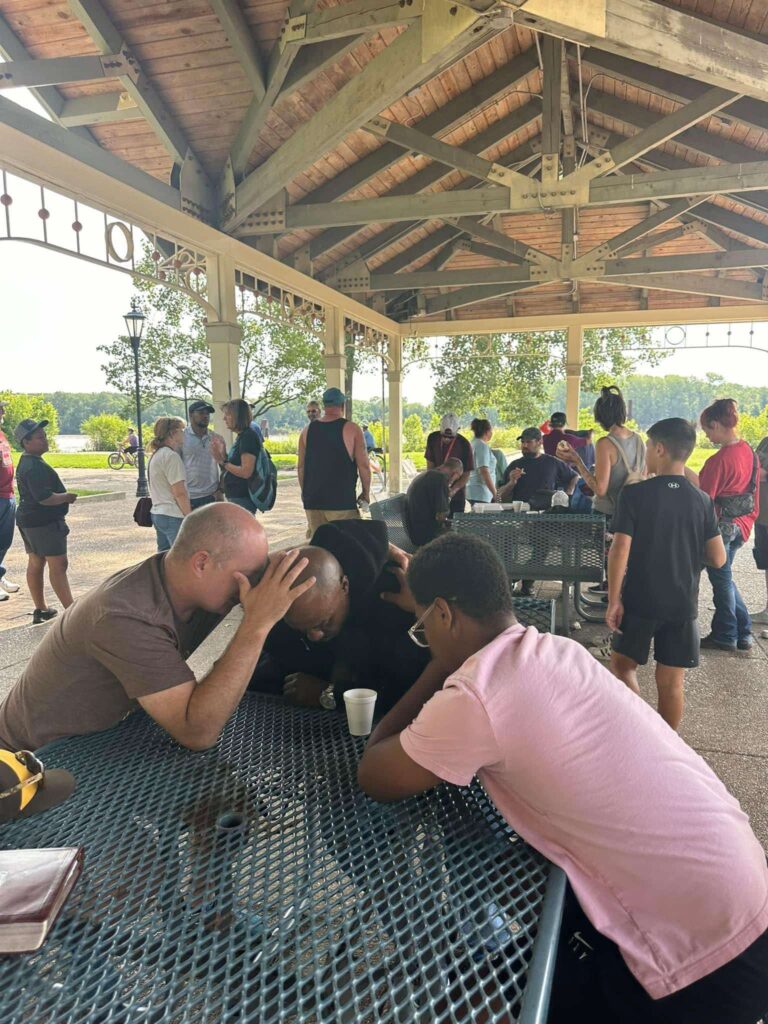
One way God has used my story is with my podcast: “Kingdom Minded,” which streams into 1000 prisons across the country on over one million inmate tablets. In partnership with the Edovo learning app, the podcast focuses on sharing testimonies and teaching Biblical principles.
Looking back, I am amazed at what God has done. In just a year our church has grown from a small group in our living room to a thriving community, passionate about sharing God’s love. Amber and I are excited about the future. We believe God is just getting started with Cultivate Church.
He can use anyone, even a former addict and convict like me, to build His kingdom.
My story and the story of Cultivate Church are really about God’s faithfulness. He can use anyone, even a former addict and convict like me, to build His kingdom. All the glory goes to Him.
To donate toward our prison ministry and homeless outreach, visit wearecultivatechurch.org or check out our Blessing Bags Gift Registry at HERE.
About the Author
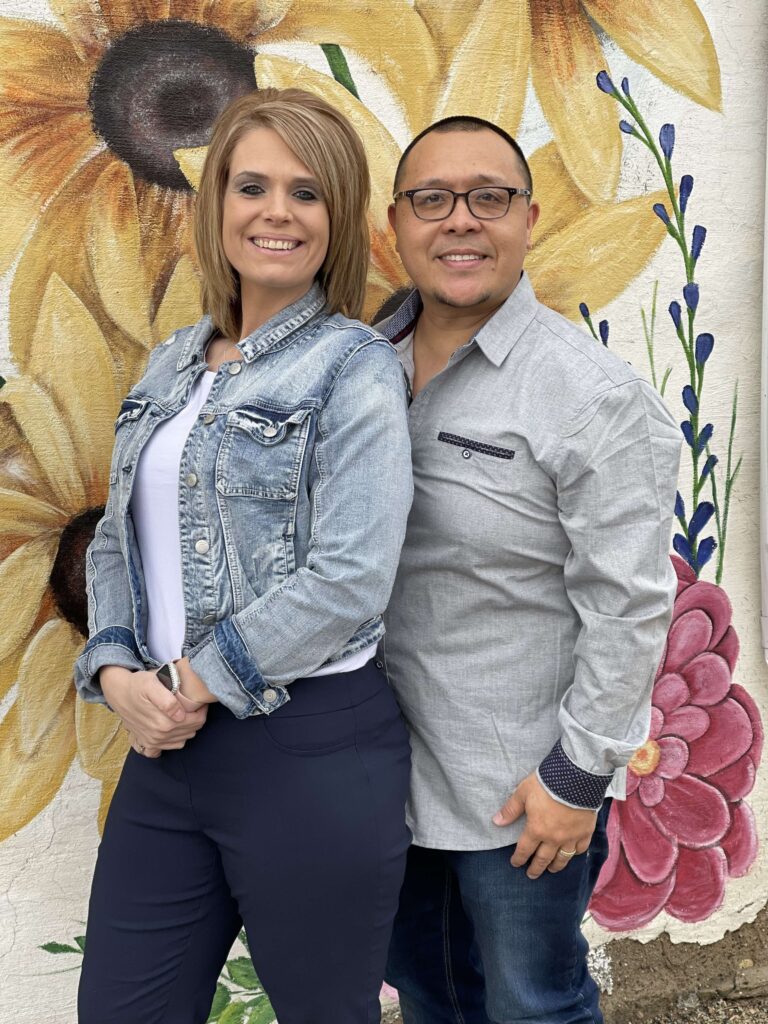
Shane R. Blackledge
Shane R. Blackledge is the co-founder and senior pastor of Cultivate Church. He and his wife Amber started Cultivate Church in their home in 2023. Today, the church is known for spreading the Gospel and being the church without walls. Shane’s podcast, “Kingdom Minded,” is available in over 1000 prisons on inmate tablets on the Edovo Learning App. Through testimonies and Bible principles, the podcast aims to teach, inspire, and equip Christians to live their best life now. Shane is an author and speaker, and his books From Prison to Purpose and Overcoming Codependency are available on Amazon. Shane and Amber have four children and live in St. Louis, Missouri.
Spotlight
God’s Greater Plans: From Infertility to Three Babies in One Year
Published
4 months agoon
July 1, 2024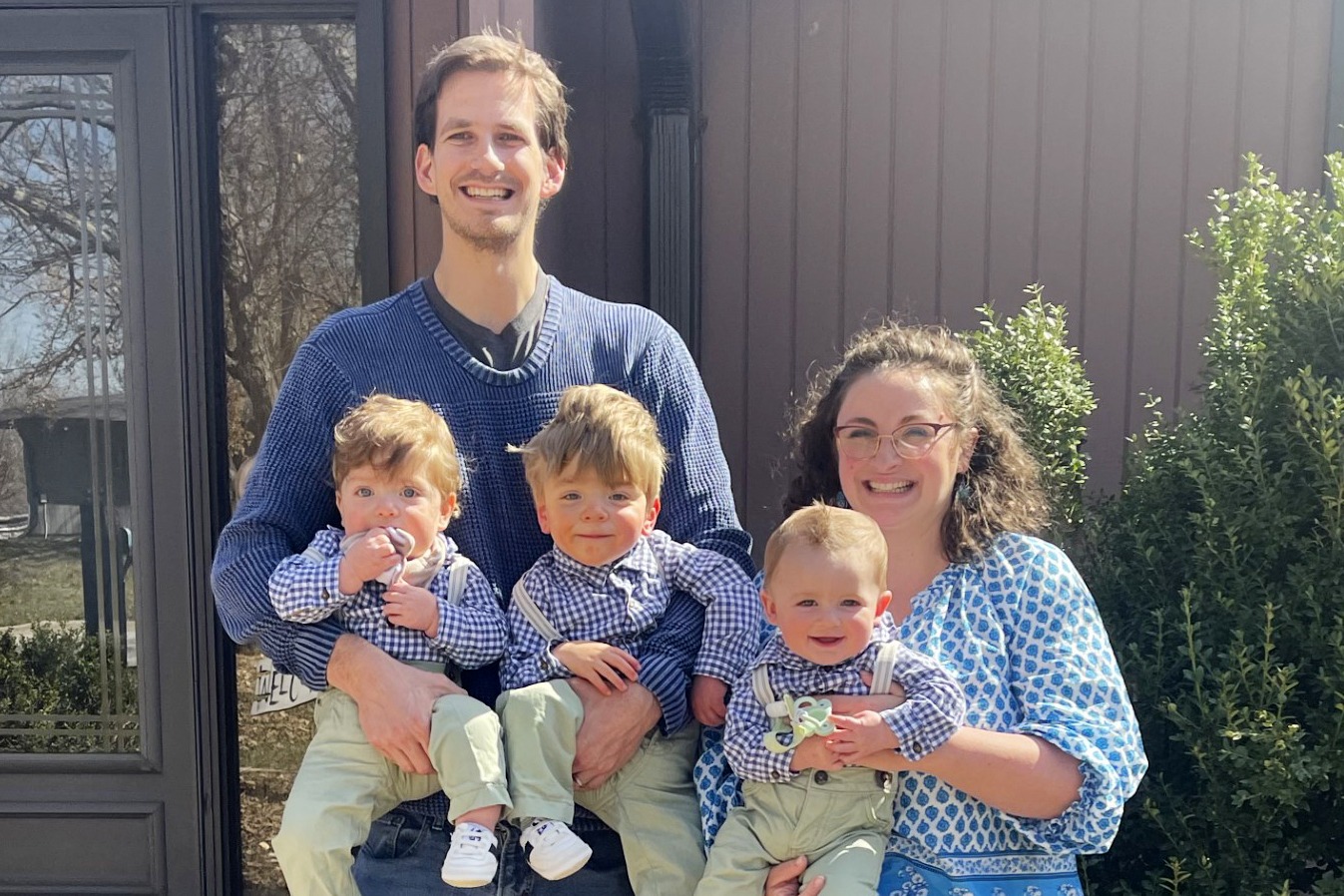
When my husband and I married in July of 2019, it was with a firm understanding of our shared life goals and dreams, and kids were a big part of our plans. In our minds we would have our biological children first, and then when we were ready, we would pursue adoption. But the Lord always has a better plan than ours, doesn’t He?
After we had been married for two years and still had not conceived, we discovered that I was having fertility issues. I saw multiple doctors and was prescribed several medications to help with conception. During this time, I remember telling my husband it felt like we were living in “limbo,” not getting anywhere closer to having a family. Because of our powerful desire to start a family soon, we decided to divert from our original plan and become foster parents.
“Had I conceived when I wanted to…we never would have met Noah and Leif, our precious sons.”
After an entire summer of preparation, our license went active, and we took a couple of short-term placements. These were our first experiences as parents and had us seriously questioning our parenting abilities! But in December of 2022 we got a call about a four-month-old boy named Noah. Noah was in the ICU with significant health concerns. We weren’t given any idea how long he would stay with us or what his life would look like, and we were scared to commit to taking on a placement that held so much uncertainty. After visiting sweet Noah in the hospital and spending considerable time talking and praying about it, we decided we wanted to take this baby and give him a loving, nurturing home — something he had not yet experienced in his short life.
Noah joined our family on December 16, 2022, and immediately, I became remarkably busy caring for him and taking him to all his appointments. We were so busy, in fact, that thinking of my own fertility was put on the back burner; it just wasn’t my priority anymore.
On January 18, 2023, after a routine follow-up for Noah at Blank Children’s Hospital, we got a call from a surgeon informing us that Noah’s brain was bleeding and we needed to rush him to the hospital for emergency brain surgery. The surgery was successful, and I stayed with Noah during his recovery in Iowa City, two hours from our hometown. We were finally discharged and returned home on January 22. During my time in the hospital with Noah, I did not have any of my fertility medications or supplements (but like I said, I wasn’t focusing on that so much anymore).
So many children have endured brokenness and trauma, and they need to be loved. If we as the church do not show them the Father’s love, who will?
Little did I know that the Lord had everything perfectly planned. On February 2, just eleven days after our hospital discharge, I found out I was pregnant. We were overjoyed!
But God wasn’t done surprising us. A few short weeks after discovering my pregnancy, we received word that Noah’s biological mother was pregnant as well, due to have a baby boy in a few months. We knew immediately that if this baby also needed to be placed in foster care, we wanted him to be with his brother, so we told our social worker we would care for him. Noah’s baby brother Leif was born in May, and just five months later, our son, Sven, was born in October. Overall, when we brought Sven home from the hospital, we had Noah (fifteen months), Leif (five months), and Sven (newborn).
In December of 2023, we were able to officially adopt Noah and Leif, ending their days of foster care and guaranteeing them a safe, loving family for a lifetime. It has been a crazy and chaotic year, but I would not trade it for the world. At the time of this writing, their ages are twenty months, ten months, and six months. Our days are filled with exploring new things and reaching new milestones, and our home is brimming with baby gear (think three car seats, three highchairs, a triple stroller…you get the picture).

I honestly believe God planned our entire story. I couldn’t see it at the time of infertility, but had I conceived when I wanted to, we never would have entered foster care, and we never would have met Noah and Leif, our precious sons. Going through this experience has given me so much assurance that God’s timing is always perfect.
If you are in the midst of infertility, I know it can be hard to hear “God has a plan!” But as someone who has seen His perfect plan come to fruition, I encourage you to go to God in prayer. Tell Him your desires, your frustrations, and your hurts, but also consider asking God what He wants from you in this season of waiting. Maybe He has called you to foster, adopt, or minister to the next generation through your church ministries.
Perhaps you haven’t experienced the struggle of infertility, but you do have a heart for the next generation. How might God use you to help disciple and love on kids around you? So many children have endured brokenness and trauma, and they need to be loved. If we as the church do not show them the Father’s love, who will?
About the Author
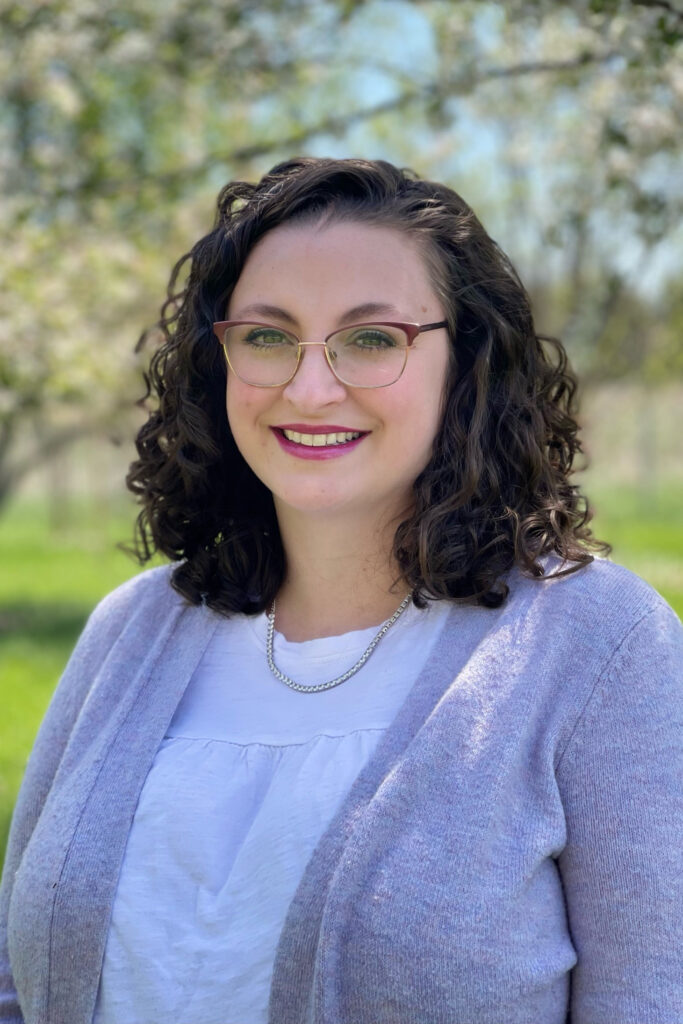
Natalie Larson
Natalie Larson has been a registered nurse at MercyOne in Des Moines, Iowa, for eleven years, working in both pediatrics and surgery. Her primary role now, however, is being mama to her three active sons. Free time has been hard to come by recently, but when Natalie finds a few moments of it, she enjoys baking, reading, and crocheting. Natalie and her husband, Alex, can be found at Journey Church in Urbandale, Iowa, on any given Sunday, where their boys are some of the most popular congregants.
Spotlight
The Community Table: Portland Open Bible Feeds Bodies and Souls
Published
6 months agoon
May 1, 2024By
Hannah Bemis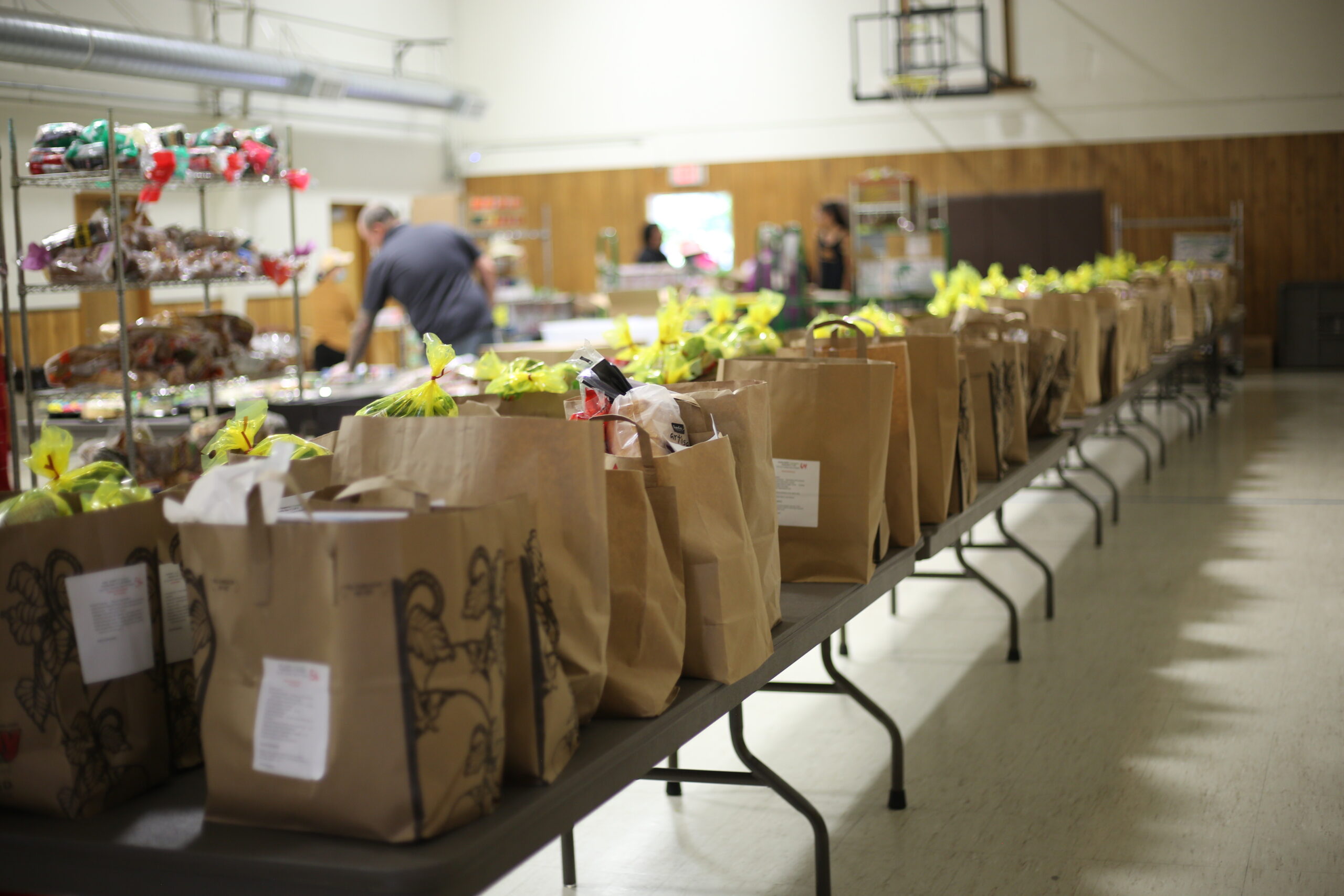
If you walk into the food pantry at Portland Open Bible (POB), you’ll see a beautifully diverse demographic that reflects the neighborhood in which it is planted. Chinese, Russian, African American, Hispanic, and White families all gather on Tuesdays and Thursdays, known in the community as “pantry days.” In addition to receiving food, they’re gifted with joy and a genuine kindness that is unusual for many of them.
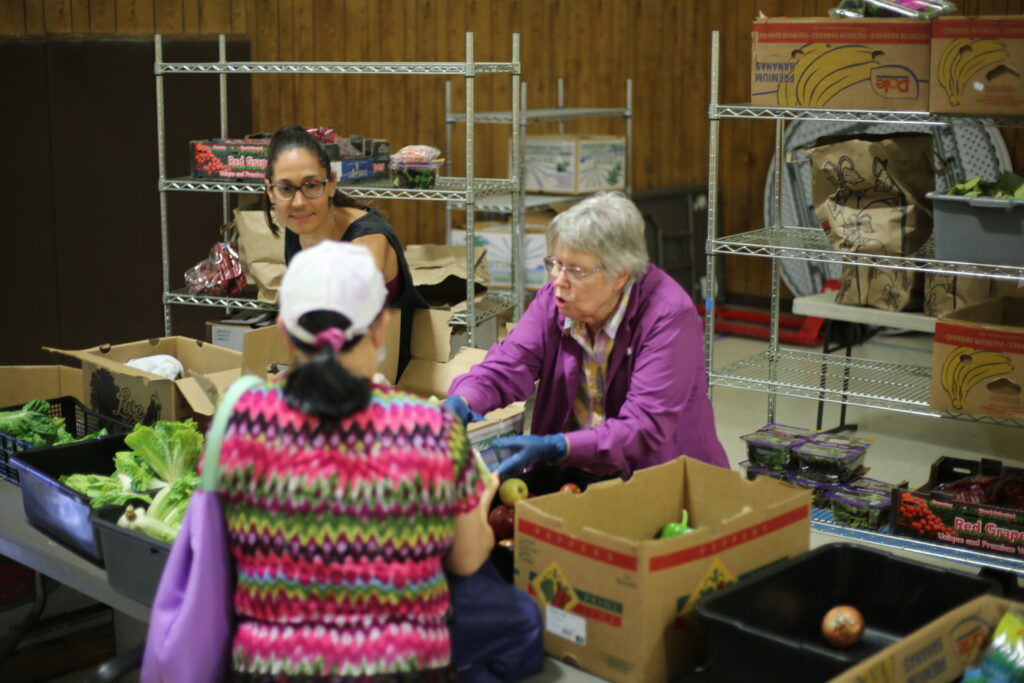
“It offers a level of humanity that they might not have had before,” said Pastor Aaron Brown. “People can say to themselves, ‘If I step on site at Portland Open Bible Church, I know that for one – people are going to be nice to me, and two – they’re going to try and help me with what I need.’”
Aaron and the food pantry team are going a step further, striving not only to give their community what it needs but also what it wants. When the pantry was in its beginning stages, the staff realized that too much of what was given away was being thrown away. They would find food thrown on the ground a short distance from the pantry, and knowing their program couldn’t be sustained with so much food waste, they were determined to solve the problem. As they began taking data on who their program was serving, noting the diverse ethnicities, they realized their food options didn’t meet the dietary needs of many of the ethnicities they were serving.
“We’re putting an end to food waste through client choice.”
“Our Asian families don’t necessarily want Ritz Crackers and Fruit Loops,” explained Aaron. The pantry developed a detailed intake form in which clients were surveyed not only on their demographics and family size, but on the types of food they most desire. This data allows the pantry to save money by purchasing only the food that is needed AND wanted by their community. “We’re putting an end to food waste through client choice.”
That’s not all. As of 2024, the pantry has begun a new program called “The Community Table.” In partnership with Providence health care, the pantry now provides weekly cooking classes with two professional chefs. Each meal is cooked from scratch with whole foods (provided free of charge to participants) and follows a recipe that was contributed by a member of the Portland community. They might cook a Russian meal one week and a Cantonese meal the next. “We have people from all cultures cooking foods from all cultures,” Aaron shared proudly. “It’s food they chose that comes with a story.” Classes are filmed, each recipe taught as a unique episode that includes the recipe’s contributor sharing the story of why that meal is meaningful to his or her family. Once all the episodes are filmed, food pantry visitors will have the option of receiving a video link for a weekly episode along with all the ingredients for that “meal of the week.”
“Everyone deserves to be fed, and to be fed healthy food.”
“I was skeptical at first, but the numbers keep growing,” said Aaron. And he’s not kidding: the pantry has expanded from its initial service of 123 families in 2013 to currently serving 84,000 families.
So, how did it all begin? Aaron credits his mother, Betty Brown, with the idea for the pantry. In 2013 the church was experiencing repeated break-ins. Despite there being technology and other valuables to steal, the only thing taken was food. Betty gathered the staff one day and gave them a choice: “We can either keep reporting these break-ins or we can start feeding our community.” They decided to do the latter. What began with a few donated canned food items by church members developed into what is now a widely recognized program funded by million-dollar grants.
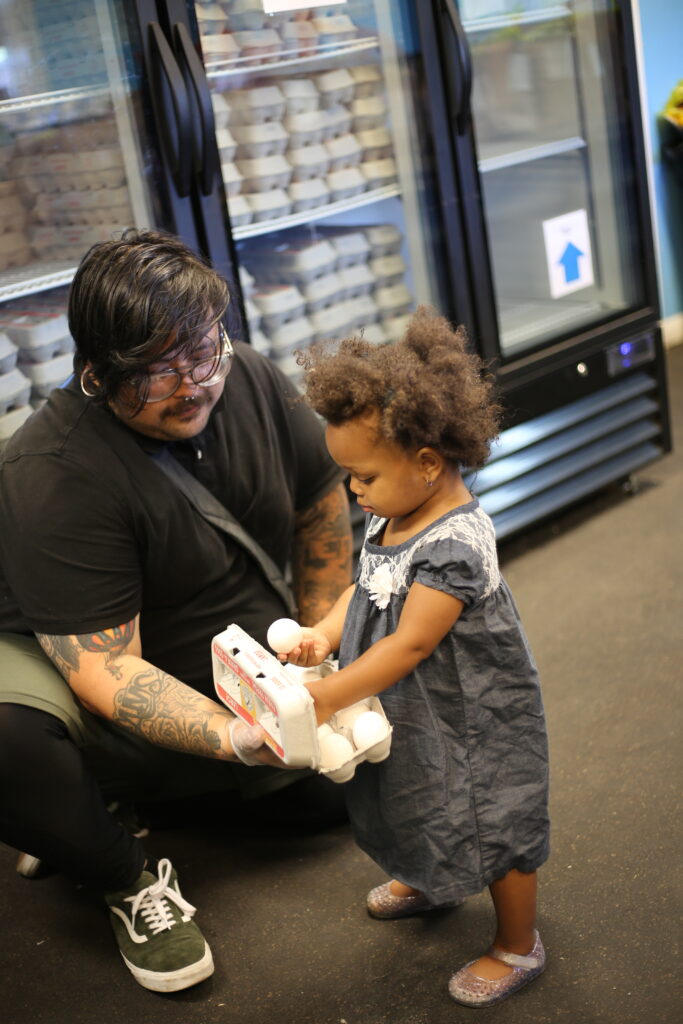
“Everyone deserves to be fed, and to be fed healthy food.” Aaron explained that their neighborhood is in an inner-city “food desert,” a technical term for a neighborhood without easy access to affordable and fresh food. These neighborhoods often have plenty of gas stations and convenience stores, but no grocery stores. Imagine being a single mom who must take city transportation to get to a grocery store in the next city over, then find a way to transport multiple grocery bags home, all with her five kids in tow. This is the reality of many families near Portland Open Bible. The pantry’s intake forms show that these families want healthy options; they’re just in a food desert where they can’t get it.
As Portland Open Bible nourishes its community, they are seeing physical nourishment carry over into the spiritual. “We try to be a beacon of light,” said Aaron. “We serve some of the nicest, friendliest people, and when they see you’ll be kind to them, they open up their whole life story. ‘I used to go to church…’ is what they’ll often say. I’ve seen former youth pastors show up, worship musicians, people high on whatever blasting worship music. They’re usually the most humble people just wanting food.” A lot of them showed up addicted, trying to get clean. They come volunteer at the pantry and get free food, then eventually end up becoming employees. “Overall,” summarized Aaron, “we’re here to bring people to Christ. A lot of people who didn’t go to church before now go to church because of the pantry.”
The pantry has expanded from its initial service of 123 families in 2013 to currently serving 84,000 families.
If you visit 92nd and Powell in Southeast Portland, you just might find a homeless man learning how to make Tiramisu. You’ll also find an innovative church feeding bodies and souls with Christ-like compassion.
“Whoever is kind to the poor lends to the LORD, and he will reward them for what they have done” (Prov. 19:17 NIV).
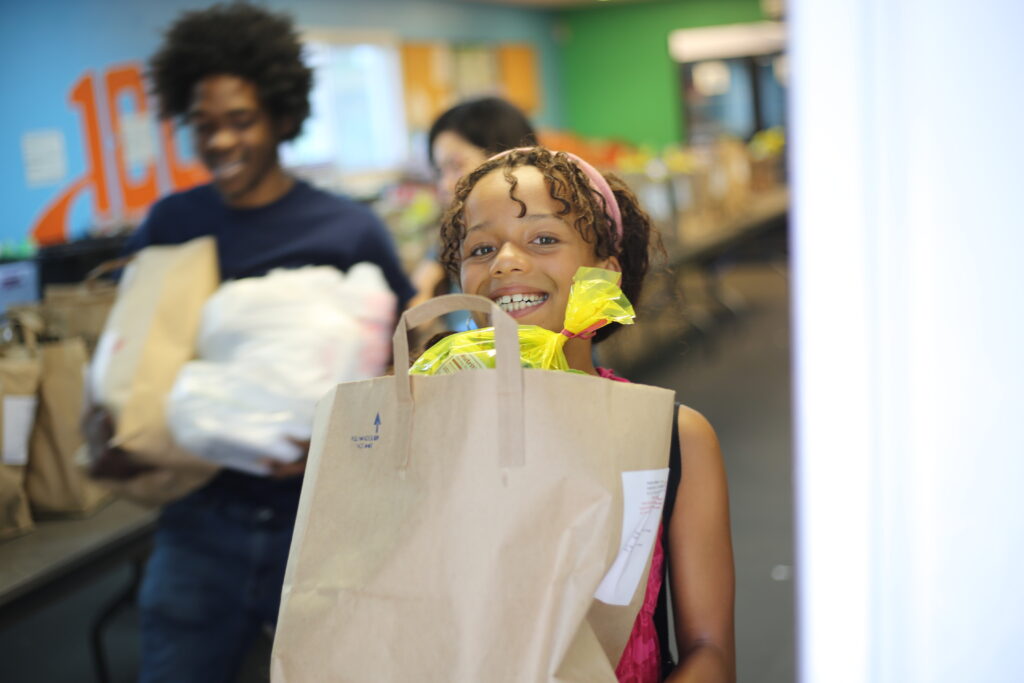
Volunteers of all ages feed people with a smile 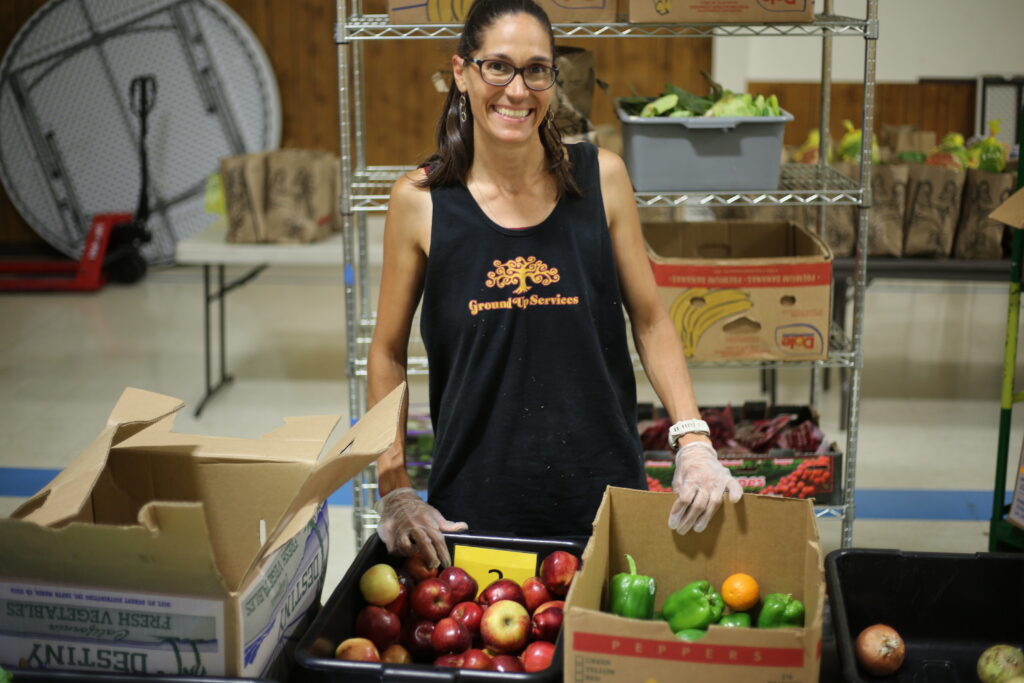
Sorting fresh produce is one of the many jobs of the pantry staff 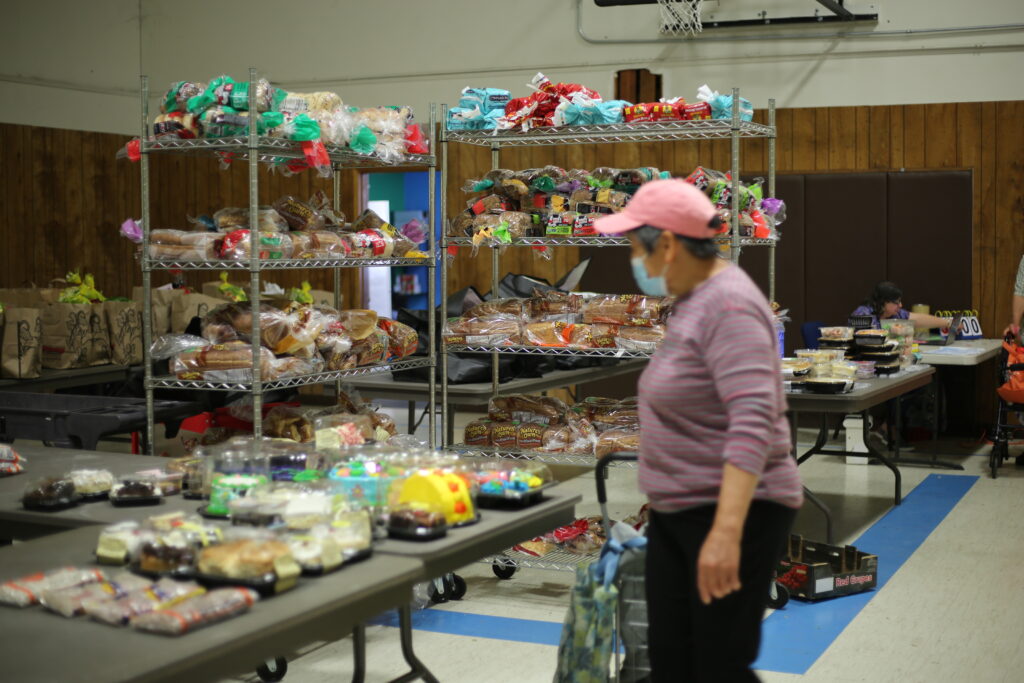
So many choices! 
Selecting the perfect egg 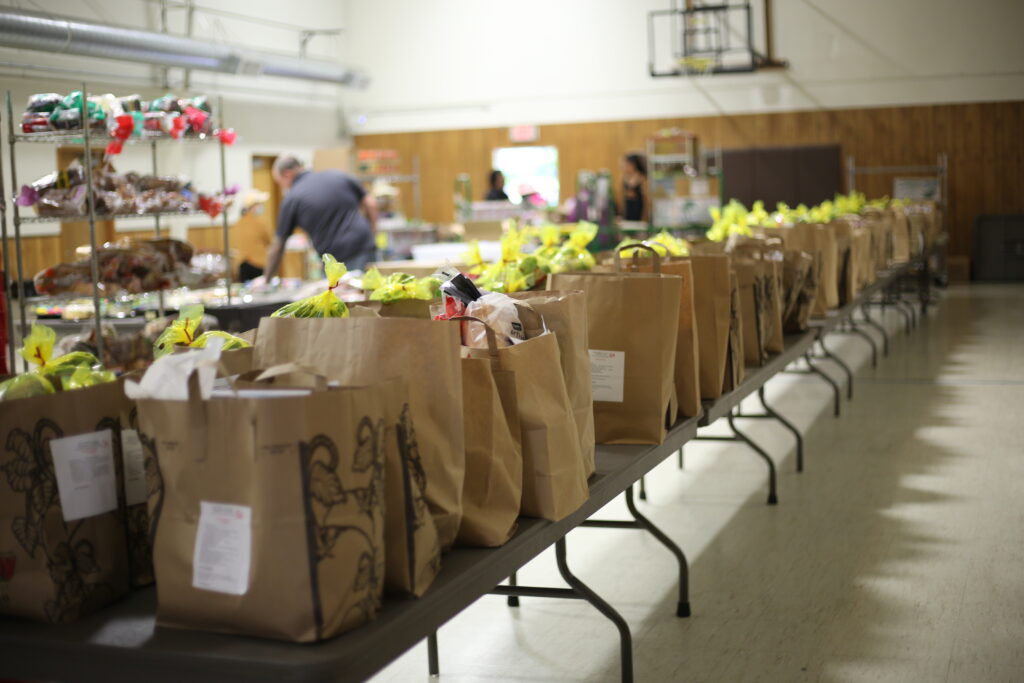
Pre-ordered food bags packed and ready for distribution 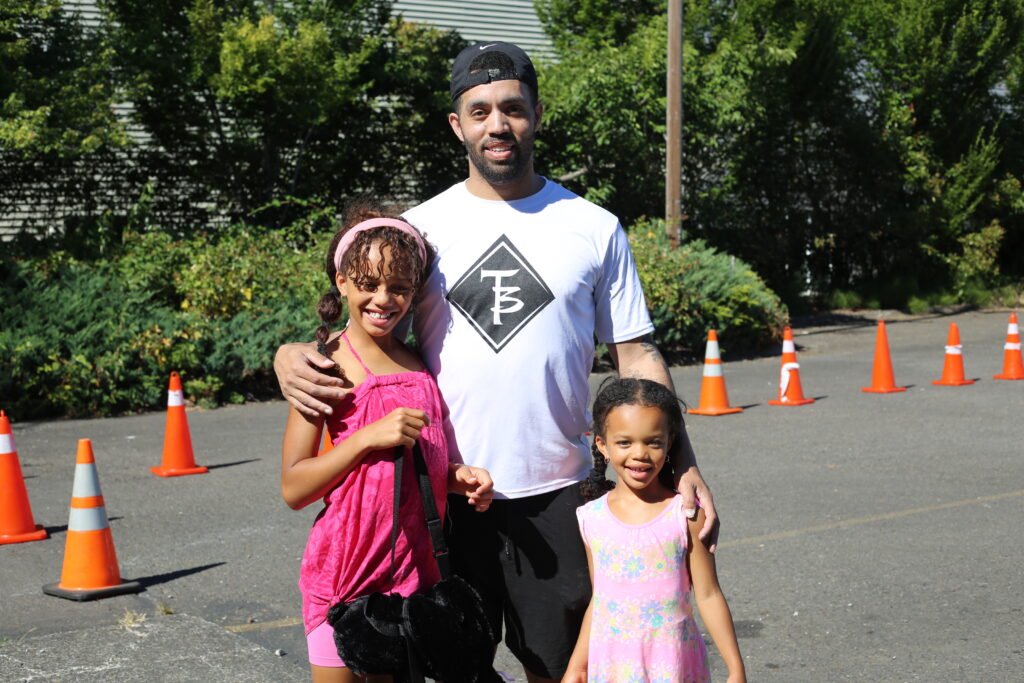
Portland Open Bible Pastor Aaron Brown, with two nieces 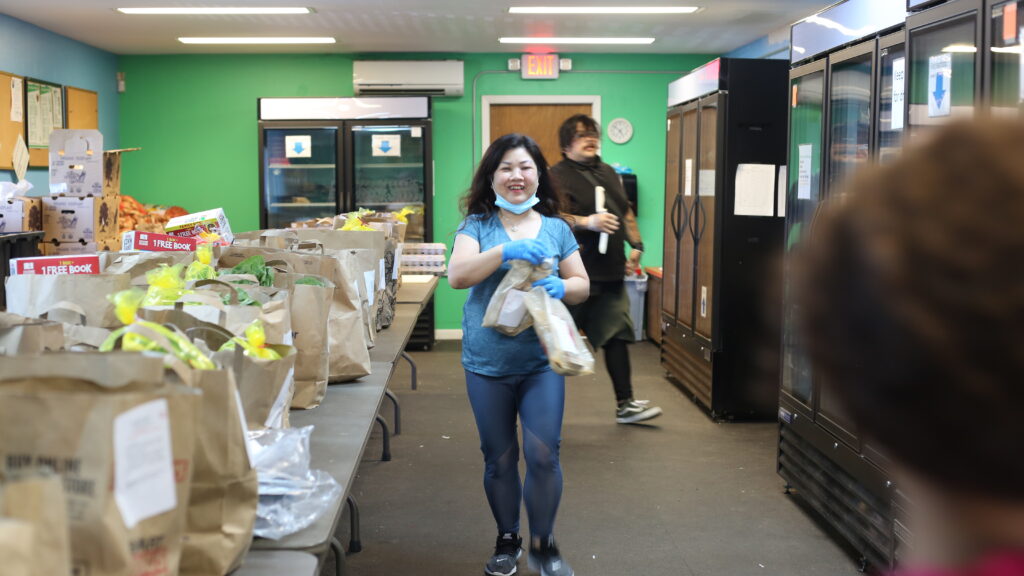
Pantry volunteers joyfully prepare food orders 
Bountiful pantry resources 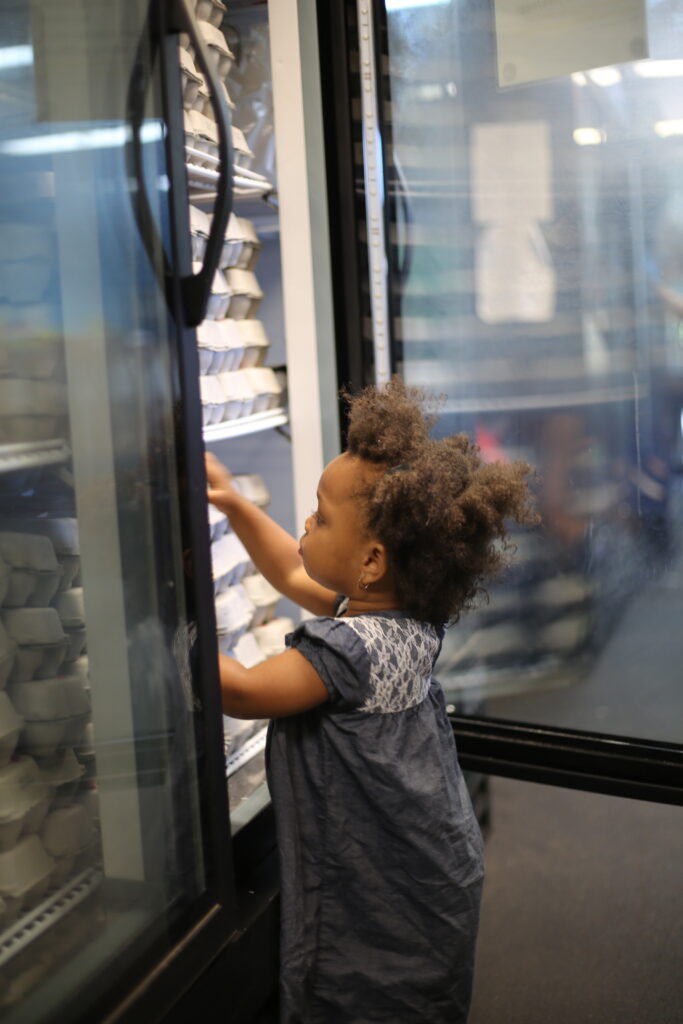
Food education (including how to select quality, fresh ingredients) is part of the pantry’s mission 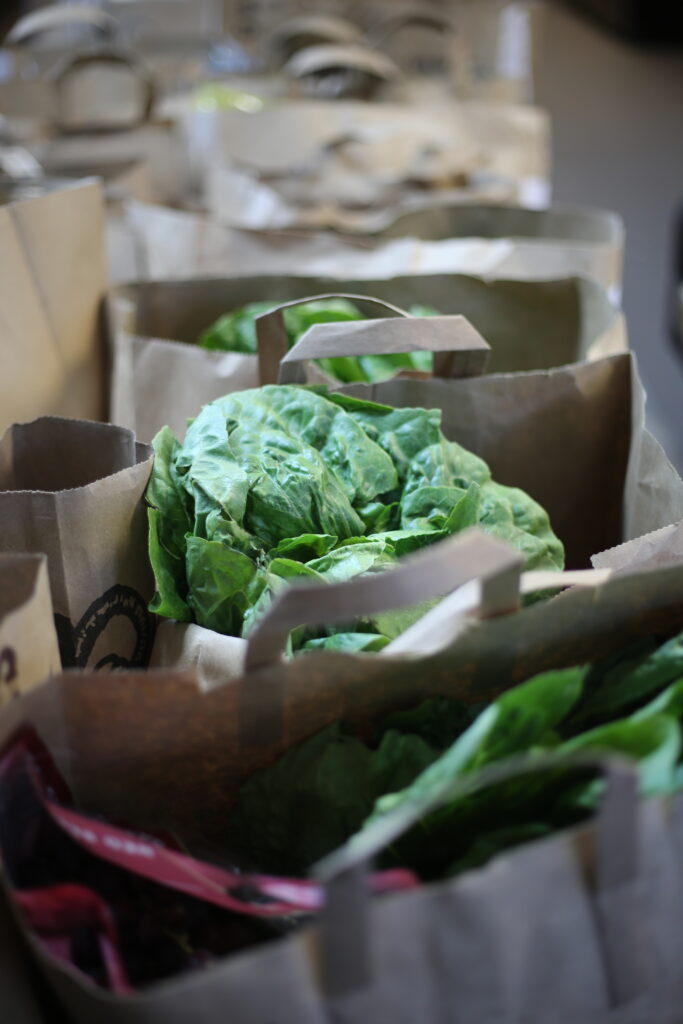
Fresh lettuce! 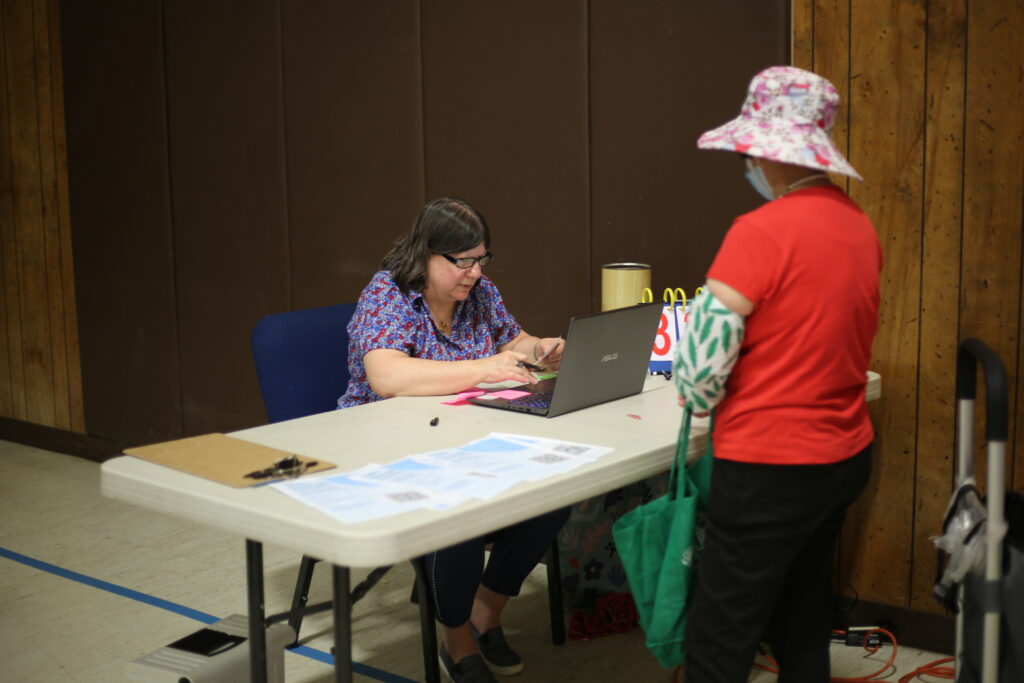
Members of the neighborhood check in to receive their weekly food 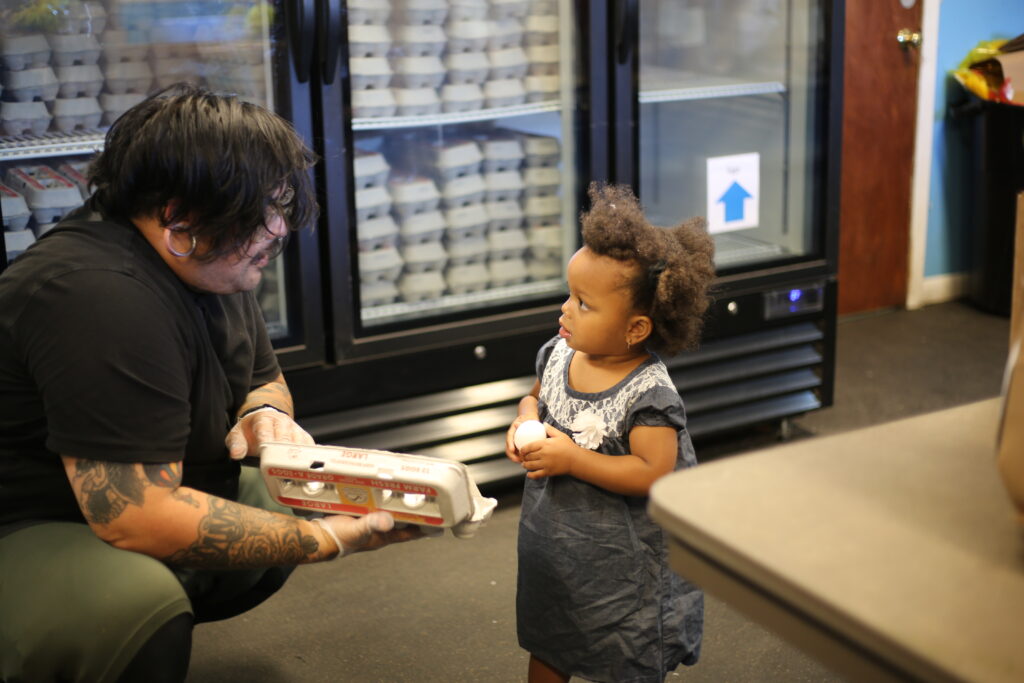
Pantry days are a weekly highlight for people of all ages 
Pantry staff hand out fresh produce to members of the neighborhood
To learn more about The Community Table, check out these videos:
About the Author
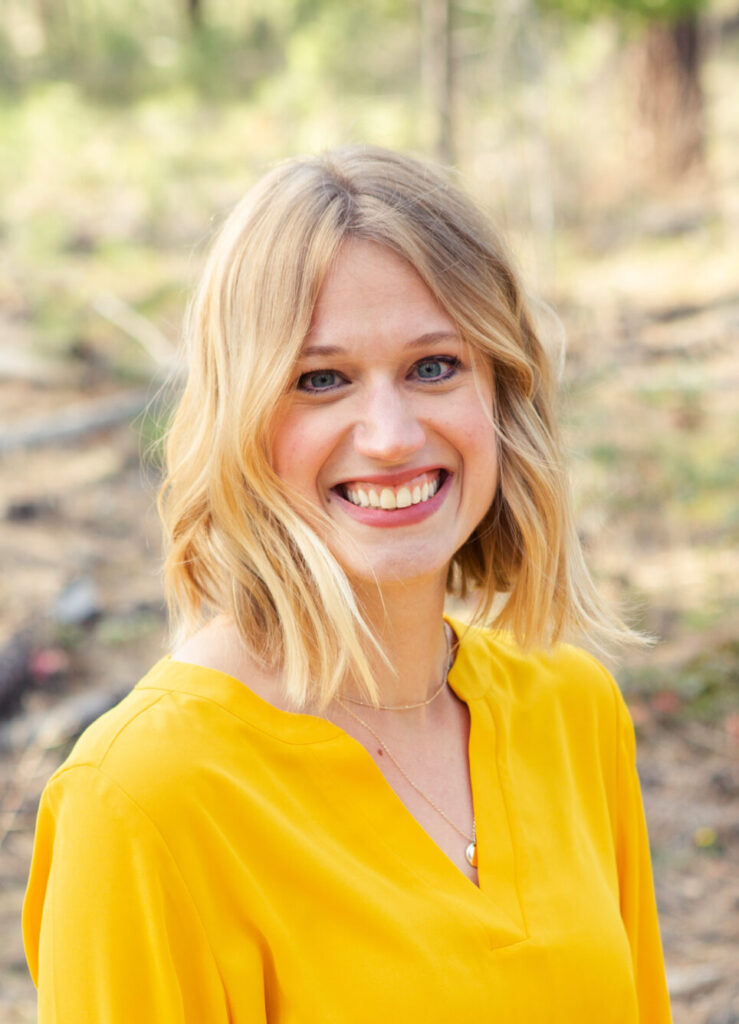
Hannah Bemis
Hannah Bemis currently serves as the Community Pastor at Turning Point Church in Spokane, Washington. She’s always wanted to do too many things when she grows up, and God has been kind enough to let her do most of them in different seasons. After seasons of mothering, teaching, writing, and staff pastoring, Hannah’s most recent adventures include serving as the Editor and Director of Message of the Open Bible and preparing to plant and co-pastor a church in Newberg, Oregon with her husband, Jordan. After Jesus and all her favorite people, she spends the remainder of her passion on pizza and dark chocolate, in equal measure.






